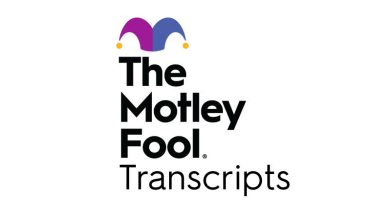Financial Wisdom for College Life: Budgeting and Maximizing Benefits
Discover essential tips for college students, including creating a budget, living frugally, and making the most of student perks to manage finances wisely and enjoy a fulfilling college experience while minimizing student loan burdens.

Moving into a college dorm is indeed an exciting and challenging time, especially when you have student loans to consider. Given the changes in student loan policies and the increasing interest rates, it’s crucial for college students to be financially savvy. Here are some financial tips to consider before moving into the dorms:
- Budget Wisely: Create a detailed budget outlining your income, expenses, and estimated loan repayments. This will help you understand how much you can afford and where you need to cut costs.
- Choose Your College Wisely: Evaluate the cost of attending different colleges and universities. Consider factors like tuition, fees, and the availability of scholarships and grants. Opt for an institution that offers a good education without burdening you with excessive debt.
- Maximize Scholarships and Grants: Apply for as many scholarships and grants as possible. This free money can significantly reduce your need for loans and make your education more affordable.
- Work Part-Time: If your schedule allows, consider working part-time during the school year or full-time during the summer to help cover your expenses and reduce the need for loans.
- Minimize Unnecessary Expenses: Be frugal and avoid unnecessary expenses. Cook your meals, use public transportation or carpool, and look for discounts on textbooks and supplies.
- Understand Your Loan Terms: Familiarize yourself with the terms of your student loans, including interest rates, repayment options, and grace periods. This knowledge will help you make informed decisions about borrowing.
- Consider Loan Forgiveness Programs: While the prospects for federal loan forgiveness may seem uncertain, explore whether you qualify for any loan forgiveness or income-driven repayment programs after graduation.
- Build Credit Responsibly: If you have a credit card, use it responsibly to build a positive credit history. Avoid carrying a balance and paying high-interest rates.
- Seek Financial Advice: Don’t hesitate to consult with financial aid counselors or financial advisors at your college. They can provide guidance on managing your student loans and overall financial situation.
- Think About Future Earnings: Choose a major and career path that aligns with your interests and offers good earning potential. This can help you repay your loans more comfortably after graduation.
- Consider Alternative Education Options: Investigate alternatives to traditional four-year colleges, such as community colleges or online degree programs, which may offer lower tuition costs while still providing a quality education.
- Stay Informed: Keep abreast of any changes in student loan policies and financial aid programs that may affect your repayment options.
Remember that while student loans can be a helpful tool for financing your education, it’s essential to use them wisely and be proactive in managing your finances. By following these financial tips, you can make the most of your college experience while minimizing the long-term impact of student loan debt.

Make the Most of Perks
Earning extra money through paid work during college can be a valuable financial strategy. Here are some additional tips for finding and managing part-time jobs while in college:
- On-Campus Jobs: As mentioned, on-campus jobs are often convenient and flexible for students. Look for positions in the library, student center, dining hall, or administrative offices. These jobs may also offer opportunities for networking and skill development.
- Work-Study Programs: If you qualify for federal work-study, explore these programs as they provide on-campus job opportunities and are designed to assist students with financial need.
- Flexible Hours: Seek part-time jobs with flexible hours that can accommodate your class schedule. Many employers understand the importance of education and are willing to work around your availability.
- Internships: Consider paid internships related to your field of study. These opportunities not only provide income but also valuable experience that can boost your resume and future job prospects.
- Online and Freelance Work: Explore online freelance opportunities that allow you to work from anywhere. Freelancing can include writing, graphic design, programming, and more. Websites like Upwork and Fiverr can be useful for finding gigs.
- Gig Economy Jobs: Platforms like Uber, Lyft, DoorDash, and others offer flexible, part-time work that can be ideal for college students looking to earn extra income on their own schedules.
- Time Management: Balancing work and academics requires effective time management. Create a schedule that allocates dedicated study time, work hours, and personal time to maintain a healthy work-life balance.
- Financial Priorities: Use your earnings wisely. Allocate a portion of your income towards immediate expenses like textbooks and living costs. Consider saving a portion for emergencies and, if possible, make early payments on your student loans to reduce interest accrual.
- Networking: Take advantage of any networking opportunities your part-time job or internship may offer. Building professional connections can be beneficial for your future career.
- Seek Career-Relevant Jobs: Whenever possible, look for part-time jobs or internships that align with your career goals. Gaining industry-specific experience can give you a competitive edge in your chosen field.
- Explore Scholarships and Grants: Continuously search for scholarships and grants that can help reduce your financial burden. Some scholarships are specifically designed for students who work part-time while attending college.
- Financial Aid Office: Consult your college’s financial aid office for guidance on work-study programs, job listings, and other financial assistance resources available to students.
Remember that while earning extra money during college is important, your primary focus should be on your education. Balance your work commitments with your academic responsibilities to ensure you excel in both areas. Additionally, it’s essential to prioritize self-care and well-being to manage the demands of college life effectively.
Create and Use a Monthly Budget
Creating and using a monthly budget and building credit are essential financial steps for college students. Here’s how to effectively implement these strategies:
Creating and Using a Monthly Budget:
- Assess Your Financial Situation: Start by understanding your income and expenses. Calculate your sources of income, including any financial aid, part-time job earnings, or allowances.
- List Your Expenses: Create a comprehensive list of your monthly expenses, including tuition, housing, utilities, groceries, transportation, textbooks, personal items, and entertainment. Be as detailed as possible.
- Differentiate Between Fixed and Variable Expenses: Categorize your expenses into fixed (consistent amounts each month, like rent) and variable (fluctuating expenses, like groceries and entertainment).
- Use Budgeting Tools: As mentioned, you can use budgeting apps or an Excel spreadsheet to track your finances. Popular budgeting apps include Mint, YNAB (You Need A Budget), and Personal Capital. These tools can help you visualize your spending patterns and set financial goals.
- Establish a Realistic Budget: Create a budget that aligns with your financial goals. Ensure that your total expenses do not exceed your income. Allocate a portion of your income to savings or paying down debt if possible.
- Track and Adjust: Regularly track your spending to ensure you’re staying within your budget. If you notice you’re overspending in a particular category, adjust your budget accordingly.
- Save for Emergencies: Build an emergency fund to cover unexpected expenses like medical bills or car repairs. Aim to save at least three to six months’ worth of living expenses.
- Hold Yourself Accountable: As Lisa Fischer mentioned, there’s power in writing things down. Document your income, expenses, and savings goals. Review your budget regularly to stay on track.
Building Credit:
- Use Credit Responsibly: Avoid high-interest credit card debt by using credit cards responsibly. Only charge what you can afford to pay off in full each month to avoid interest charges.
- Credit Reporting Apps: Utilize apps like Experian Boost to have your rent payments, utility bills, and subscription services reported to credit bureaus. This can help establish a positive credit history.
- Credit-Builder Loans: Consider a credit-builder loan offered by some credit unions or online lenders. These loans are designed to help individuals with limited or poor credit history build credit by making regular payments.
- Student Credit Card: Apply for a student credit card, which is typically easier to qualify for. Use it for small, manageable purchases and pay the balance in full each month to build a positive credit history.
- Secured Credit Card: If you have difficulty qualifying for a traditional credit card, consider a secured credit card. It requires a deposit, which becomes your credit limit. Responsible use can help improve your credit score.
- Become an Authorized User: Ask a parent or trusted friend with a good credit history to add you as an authorized user on one of their credit card accounts. This can help boost your credit score through their positive payment history.
Remember that building good financial habits during college can set a strong foundation for your financial future. Prioritize responsible spending, saving, and credit management to ensure a healthy financial outlook as you progress through your college years and beyond.
Start Building Credit
Living frugally during your college years is a smart approach to managing your finances, especially if you’re funding your education with student loans. Here are some tips for embracing a cost-effective college lifestyle and making the most of available perks:
Live Frugally:
- Prioritize Needs Over Wants: Distinguish between essential items and luxuries when making spending decisions. Focus on purchasing what you genuinely need and resist impulse buying.
- Budget Mindfully: Stick to a well-structured budget that covers essential expenses like tuition, housing, food, and transportation. Allocate a portion for discretionary spending but be mindful of your limits.
- Used and Secondhand Items: Consider buying used or secondhand items for dorm room furnishings, textbooks, and clothing. This can significantly reduce expenses.
- Meal Planning: If you have a meal plan, make the most of it. Utilize the dining hall for your meals to save on food expenses. Avoid frequent dining out, which can be costly.
- Transportation: Use affordable transportation options like public transit, carpooling, or biking to save on commuting costs. Avoid the expense of owning and maintaining a car if it’s not essential.
- Roommates: If you have control over your housing arrangements, consider sharing a dorm room or apartment with roommates to split costs.
- Entertainment and Socializing: Seek out free or low-cost entertainment options, such as campus events, movie nights, and student clubs. Limit expensive outings.
- Student Discounts: Take advantage of student discounts offered by local businesses, transportation services, and entertainment venues. Always carry your student ID and inquire about available discounts.
Make the Most of Perks:
- Utilize College Resources: Maximize the use of facilities and services covered by your tuition, such as libraries, fitness centers, computer labs, and academic support services.
- Meal Plans: Use your meal plan efficiently to avoid unnecessary food expenses. Explore different dining options available on campus.
- Free or Discounted Activities: Participate in free or low-cost campus activities and events. These can provide entertainment and social opportunities without straining your budget.
- Student Clubs: Join student organizations and clubs that interest you. These often offer a range of benefits and activities, from networking opportunities to group outings.
- Library Resources: Take advantage of the resources at your college library, including textbooks, research materials, and study spaces.
- Fitness Center: If your campus has a fitness center, use it to stay active and save on gym membership fees.
By adopting a frugal mindset and taking full advantage of the resources and perks available to you as a college student, you can manage your finances effectively and reduce the financial burden associated with student loans. Developing good money habits during your college years can set you on a path toward financial stability and success in the future.




